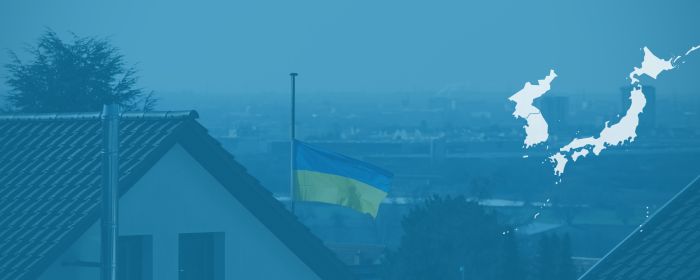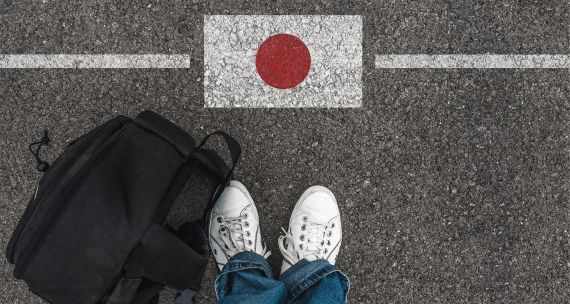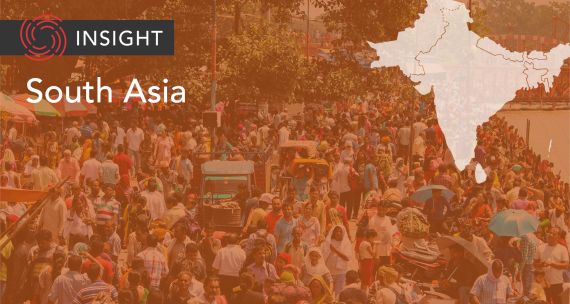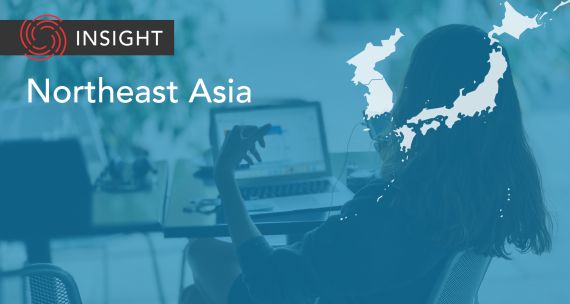The Takeaway
On March 26, the South Korean Ministry of Justice announced its decision to waive visa application fees for Ukrainian refugees of Korean descent who are fleeing the Russia-Ukraine war. Despite this measure and related support mechanisms for ethnic Koreans from Ukraine, the group continues to encounter difficulties regarding their legal status, employment, and language competency in South Korea.
In Brief
The Ministry of Justice in South Korea announced that Ukrainian refugees of Korean descent who are “Koryoin” will be exempt from visa application fees. Koryoin refers to ethnic Koreans who migrated to Central Asia, Ukraine, or Russia/Soviet Union between 1860 and 1945.
As of 2021, there were an estimated 500,000 ethnic Koreans dispersed in Central Asia and Russia due to their forced relocation from the Russian Far East by Josef Stalin. In Ukraine's 2001 census, 12,711 people identified as ethnic Koreans. Since the Russia-Ukraine war began in February 2022, around 1,200 Koryoin have entered South Korea.
Koryoin organizations in South Korea have called for emergency travel visas and accelerated immigration processes to assist those coming from Ukraine. Koryoin Village in Gwangju, established in 2015, has supported about 857 people fleeing Ukraine. Residents have helped to cover the costs of plane tickets out of Ukraine, in addition to other donations. However, Koryoin refugees face challenges due to a lack of support for health insurance and residency costs. These factors exacerbate their struggles as many find it difficult to find jobs in South Korea, especially with language barriers.
As of December 2022, 3,438 of the 5,205 Ukrainians residing in South Korea on short-term and long-term visas are of Korean ethnicity, which includes those who settled in South Korea before the Russia-Ukraine war. An estimated 200 to 300 stateless Koryoin, who lost their citizenship after the Soviet Union collapsed in 1991, also reside in South Korea. Those who resettled in South Korea before the Russia-Ukraine war have been helping their family and friends in Ukraine migrate to South Korea, which resulted in the Ministry of Justice expanding the scope of family visas issued for ethnic Koreans in March 2022.
Implications
In April 2022, the South Korean government issued travel documents for Ukrainians of Korean descent and others with families in South Korea, even if they did not have passports. While this simplified the process to enter the country, many struggled due to the precariousness of temporary visas, such as the H-2, G-1, and F-4 visas. Many Koryoin resort to farming or factory work, which does not provide them with enough income to support themselves or afford health care. Women are particularly vulnerable as many escaped Ukraine after their husbands were drafted to fight in the war.
Settled refugees in South Korea comprise young children, women, and older adults. Educating their children and learning the Korean language are some of the biggest challenges for Koryoin women. The lack of affordable childcare also makes it harder for single-parent families to find work. Although Korean language programs are expanding in Koryoin Village, it cannot sustain the increasing number of people who need Korean language training. Lack of access to medical care is another major issue, especially for those who need to take care of older family members. Refugees’ medical needs are likely to be higher than those of the general population due to conflict-related trauma and complications.
Many experts argue that more protection and support mechanisms are needed for Koryoin refugees in South Korea as their migration is a multicultural phenomenon formed by global migration due to the Russia-Ukraine war. The government may need to be more responsive in helping Ukrainian Koryoin recover and survive in their new environment.
What's Next
- Gwangju city realizes value of inclusiveness, coexistence
On March 24, the city of Gwangju held a Cultural Diversity Committee meeting to deliberate on plans for cultural diversity in 2023. The meeting resulted in a total of 82 proposed projects within a budget of C$205 million (195.7 billion won), with all of the projects designed to create an environment of diversity and inclusion. Opportunities for language and cultural expression will be expanded to help Koryoins, North Korean refugee women, and other foreigners.
- Non-profit charities, local communities support Koryoin
The Community Chest of Korea, a non-profit organization, provides medical and other daily necessities through their emergency support project for Ukranian Koryoin, with up to about C$211 (200,000 won) per month per Koryoin. The organization also offers psychological counselling to Koryoin refugees, with about 201 families and 612 people already receiving help.
- Overseas agency and identity
The Korean diaspora have complex histories and relationships with Korea, their own identities, and even names. “Koryoin” is used in South Korea, but many ethnic Koreans in post-Soviet Union states identify themselves as “Koryo-saram.” The South Korean government uses the term “Overseas Koreans” to encompass ethnic Koreans who reside abroad. In February 2023, the South Korean government announced plans to establish a separate Overseas Koreans Office with a budget of C$100 million (100 billion won) for ethnic Koreans and their descendants by June 2023. This office will need to appreciate the diverse identities and histories — as well as significance — of ethnic Koreans, especially those who have fled the Russia-Ukraine war.
• Produced by CAST’s Northeast Asia team: Dr. Scott Harrison (Senior Program Manager); Momo Sakudo (Analyst); Tae Yeon Eom (Analyst); and Sue Jeong (Analyst).




